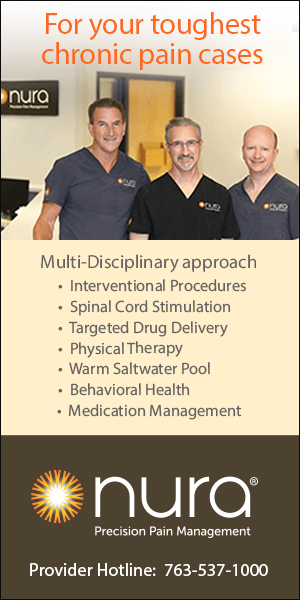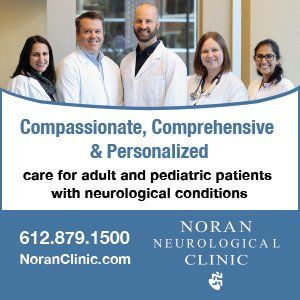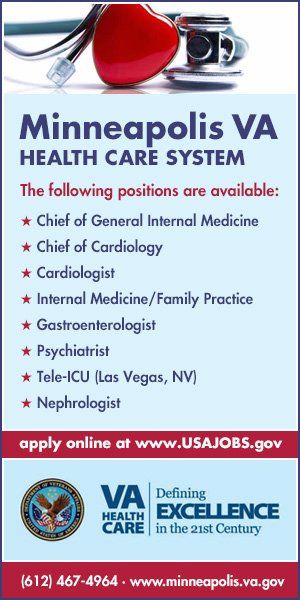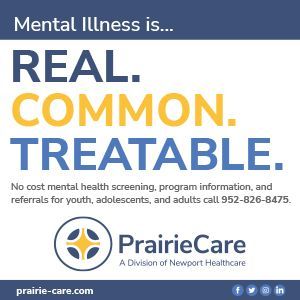s Minnesota becomes the 23rd state in the country legalizing cannabis for people aged 21 and older, residents are curious about what the future holds for the state’s medical cannabis program, and if the program can be sustained once adult-use retail dispensaries open.
Legislation
Minnesota’s Medical Cannabis Program
Meeting patient needs in a changing landscape
BY Nick Lehnertz, MD, MPH, MHS and Chris Tholkes, MA
To best predict the future of the program, it’s important to understand both its history and its successes dating back to its inception eight years ago as well as what the program means to the patients it serves today.
By the Numbers
Minnesota’s Medical Cannabis Program was signed into law May 29, 2014, with medical cannabis products becoming available to registered patients July 1, 2015.
The Minnesota Medical Cannabis Program started modestly with only 472 health care practitioners signing on to certify patients. Fast forward to 2023, and the state’s Medical Cannabis Registry counts 2,339 licensed physicians, advanced-practice registered nurses, and physician assistants among its health care practitioner ranks.
Medical cannabis is legal in 38 states and four territories.
Similarly, in 2015 only 837 patients registered with the program. By mid-2023, that figure had ballooned to nearly 40,000 Minnesotans approved to participate in the program.
Most patients (59.3%) receive medical cannabis to manage chronic and/or intractable pain, whereas 32.3% use it to manage post-traumatic stress disorder (PTSD) symptoms. The genders of patients across all qualifying medical conditions varies slightly by age group, but averages 47.2% female, 51.5% male and 1.2% who prefer not to answer. The average age of registered patients is 46.7, with 81.1% identifying as White and half of all enrolled patients residing in the seven-county Twin Cities metropolitan area – numbers that are consistent with the state’s racial and geographic demographics.
Adult-Use Cannabis in Minnesota
On May 30, 2023, Gov. Tim Walz signed a bill legalizing adult-use cannabis in Minnesota. The bill marks Aug. 1, 2023, as the date when the use and possession of certain amounts of cannabis can be decriminalized. The state-licensed sale of legal adult-use cannabis will not begin until the first quarter of 2025 (Tribal Nations do not need to follow this timeline, and Red Lake Nation opened a recreational dispensary Aug. 1).
Through the lens of public health, legalization allows for the benefit of increased regulation and oversight. Consumers have a right to know that their products are tested for mold or heavy metals and that the potency on a label will match that of the product inside. This holds true whether the cannabis product is purchased for adult use or medicinal use.
Still, the question remains: What will the availability of adult-use cannabis mean for the state’s Medical Cannabis Program?
The Office of Medical Cannabis anticipates up to a 30-40% attrition rate of registered medical patients, which would be consistent with participation declines found in other states that operated medical cannabis programs prior to state-wide legalization for adult use.
Still a majority of the state’s patients are predicted to stay with the program. Why? Because the procurement of cannabis through medical channels offers unique advantages that retail markets cannot.
One of the most oft-cited advantages of the medical cannabis program is the expertise of a health care team. Retailers may have comprehensive knowledge of cannabinoid products, but their involvement ends at the point of sale. A health care team, meanwhile, is familiar with a patient’s condition and case history and provides ongoing guidance and monitoring to ensure accurate dosage, timing and integration with other treatments and medications. Most important, this support gives patients confidence that their medicine is optimized for their needs.
Another advantage is in cost. According to Minnesota law, medical cannabis is granted tax-free status; meanwhile, adult-use cannabis requires a gross receipts tax of 10% in addition to state and local sales taxes. All other factors being equal, a medically procured cannabinoid product will cost less than its retail-purchased equivalent.
Lastly, medical cannabis has no age minimum for its patients; adult-use cannabis will be available only at dispensaries for Minnesotans aged 21 years and older. This is particularly relevant to the pediatric patients in the state’s registry, some of whom are as young as 5 years of age. Access to the program has proven to be life changing for these patients and their families, and the lack of age restrictions will continue to ensure successful health outcomes.
An additional long-term benefit of the medical cannabis program is patient contribution to research. High-quality data and clinical trials in the field of medical cannabis research are scarce, and the lack of reliable information equates to fewer and less precise options for real world applications. Patients in Minnesota’s program are required to complete a self-evaluation form prior to each medical cannabis purchase. The self-evaluation includes questions to address symptom severity – some of which are administered to all patients and some of which are tailored to symptoms for a given condition. Because symptom data is collected prior to each patient’s first medical cannabis purchase, symptom changes can be assessed over time and compared to a baseline.
Minnesota’s Office of Medical Cannabis has a goal to add to the scientific literature about medical cannabis and shares nonidentifiable data with external researchers to increase the amount of scientific literature about medical cannabis use (patient names or other identifiable information are not shared). Because Minnesota’s medical cannabis patients are monitored throughout the course of their treatment, they help provide data that assists researchers determine benefits of the medicine, which in turn aids the treatment of future patients. Health care providers can review condition-specific reports published by the Office of Medical Cannabis by going to the Data and Reports section of the OMC website: mn.gov/medicalcannabis.
The procurement of cannabis through medical channels offers unique advantages.
Changes and Expansions to the Program
While the Medical Cannabis Program has seen increased participation since 2015, many individuals faced access barriers and administrative burdens due to stipulations implemented by the original guidelines. The recent adult-use bill passed by the Minnesota legislature included changes aimed at eliminating barriers for medical cannabis patients, including:
- Effective July 1, 2023, the annual enrollment fee (previously $200 a year or $50 for people with medical assistance) was eliminated.
- The latest medical cannabis dispensary opened in April 2023 in New Hope, making it the 15th dispensary in the state.
- Effective March 1, 2025, patients will be required to get recertified for their qualifying medical condition every three years, instead of every year.
- Effective March 1, 2025, the age for registered caregivers to purchase cannabis flower will be 18, rather than 21.
- Available delivery methods of medical cannabis also expanded in 2022. Dried flower, which was approved by the Minnesota Legislature in 2021, became available for registered patients 21 and older effective March 1, 2022. With flower’s availability, the program saw a significant increase in patient enrollment.
- Patients also became eligible to buy gummies/chews at the state’s medical cannabis dispensaries effective Aug. 1, 2022. That form of medicine was approved by the Minnesota Department of Health in 2021 during the annual petition and public comment process.
More information about this will be posted on the Office of Medical Cannabis website when available.
These changes will ensure the sustained participation of many existing patients and are hoped to increase access for Minnesotans with qualifying medical conditions.
Another key change to Minnesota’s Medical Cannabis Program will establish an alternative certification procedure for veterans who receive care from the U.S. Department of Veterans Affairs to confirm that ‘a qualifying medical condition has been diagnosed. The new application procedure will be effective Jan. 1, 2024.
Qualifying Medical Conditions List Expands
Two new qualifying conditions were recently approved for medical cannabis use, bringing the program’s total conditions to 19. Effective Aug. 1, 2023, patients with irritable bowel syndrome (IBS) or obsessive-compulsive disorder (OCD) can get certified to receive medical cannabis therapy. Some research has suggested that using medical cannabis to treat the symptoms of these conditions may bring relief to patients.
Qualifying medical conditions include:
- Alzheimer’s disease
- Amyotrophic lateral sclerosis (ALS)
- Autism spectrum disorder (must meet DSM-5)
- Cancer*
- Chronic motor or vocal tic disorder
- Chronic pain
- Glaucoma
- HIV/AIDS
- Inflammatory bowel disease, including Crohn’s disease
- Intractable pain
- Irritable bowel syndrome
- Obsessive-compulsive disorder
- Obstructive sleep apnea
- Post-traumatic stress disorder (PTSD)
- Seizures, including those characteristic of epilepsy
- Severe and persistent muscle spasms, including those characteristic of multiple sclerosis (MS)
- Sickle cell disease
- Terminal illness, with a probable life expectancy of less than one year*
- Tourette syndrome
*If the patient’s illness or its treatment produces one or more of the following: severe or chronic pain; nausea or severe vomiting; or cachexia or severe wasting.
Looking Ahead
While still prohibited under federal law, medical cannabis is legal in 38 states and four territories, and cannabis can be legally purchased by anyone aged 21 or older in 23 states, the District of Columbia, Guam, and the Northern Mariana Islands.
The Office of Medical Cannabis looks forward to growing its program as it brings relief to Minnesota residents with qualifying conditions. There will always be a place for medical cannabis in Minnesota in the toolbox of treatments to restore health and quality of life for patients.
For those interested in hearing the stories of Minnesota’s medical cannabis patients, please visit the Minnesota Department of Health YouTube channel (www.youtube.com/mnhealth), where patients share their journeys with medical cannabis through a series of videos.
Health care providers who are interested in participating in the program should visit the Office of Medical Cannabis website – mn.gov/medicalcannabis – and review the “For Health Care Practitioners” section.
Nick Lehnertz, MD, MPH, MHS, is a medical specialist in the Division of Infectious Disease Epidemiology, Prevention and Control at the Minnesota Department of Health.
Chris Tholkes, MA, is the director of the Office of Medical Cannabis at the Minnesota Department of Health.
MORE STORIES IN THIS ISSUE
cover story one
Artificial Intelligence in Medicine: A look at where we are today
By Chesley Chen, MS, MBA
cover story two
Reimagining the Hospital Medical Library: Maintaining an under appreciated asset
By Hilton M. Hudson, MD, FACS


















